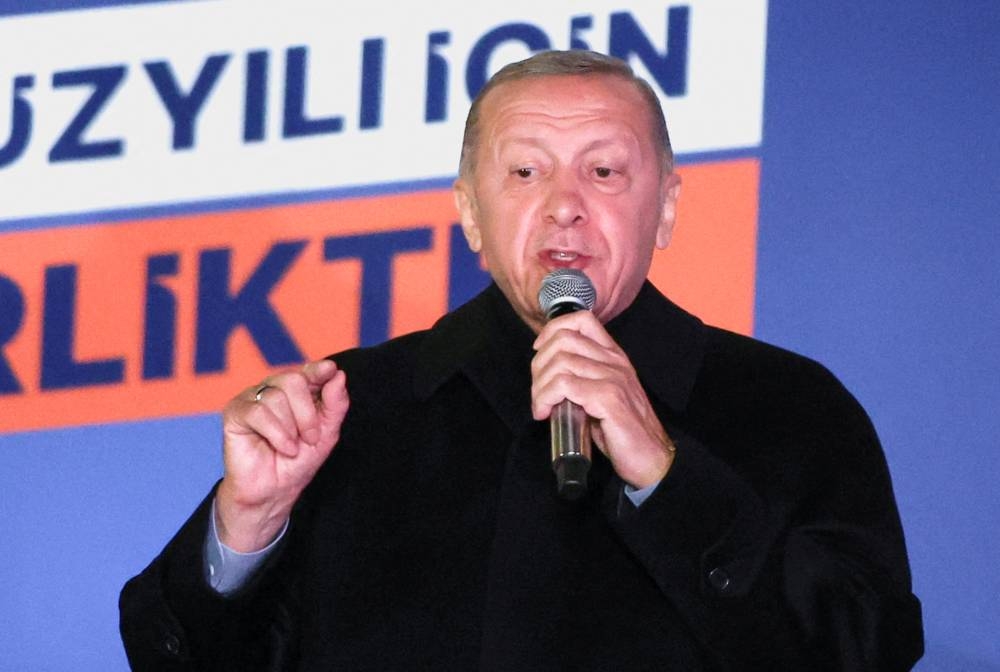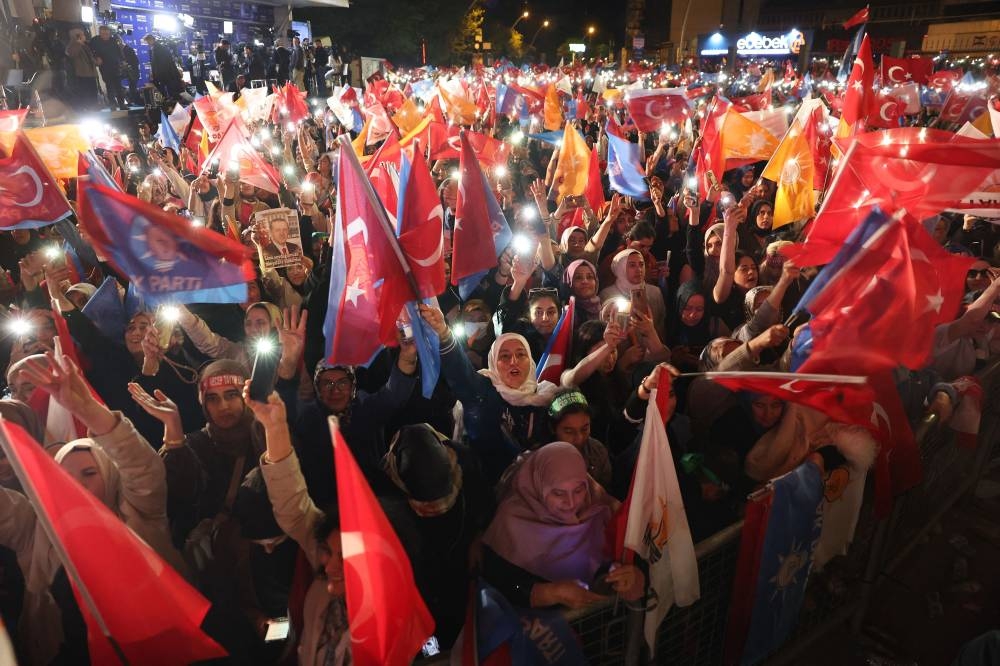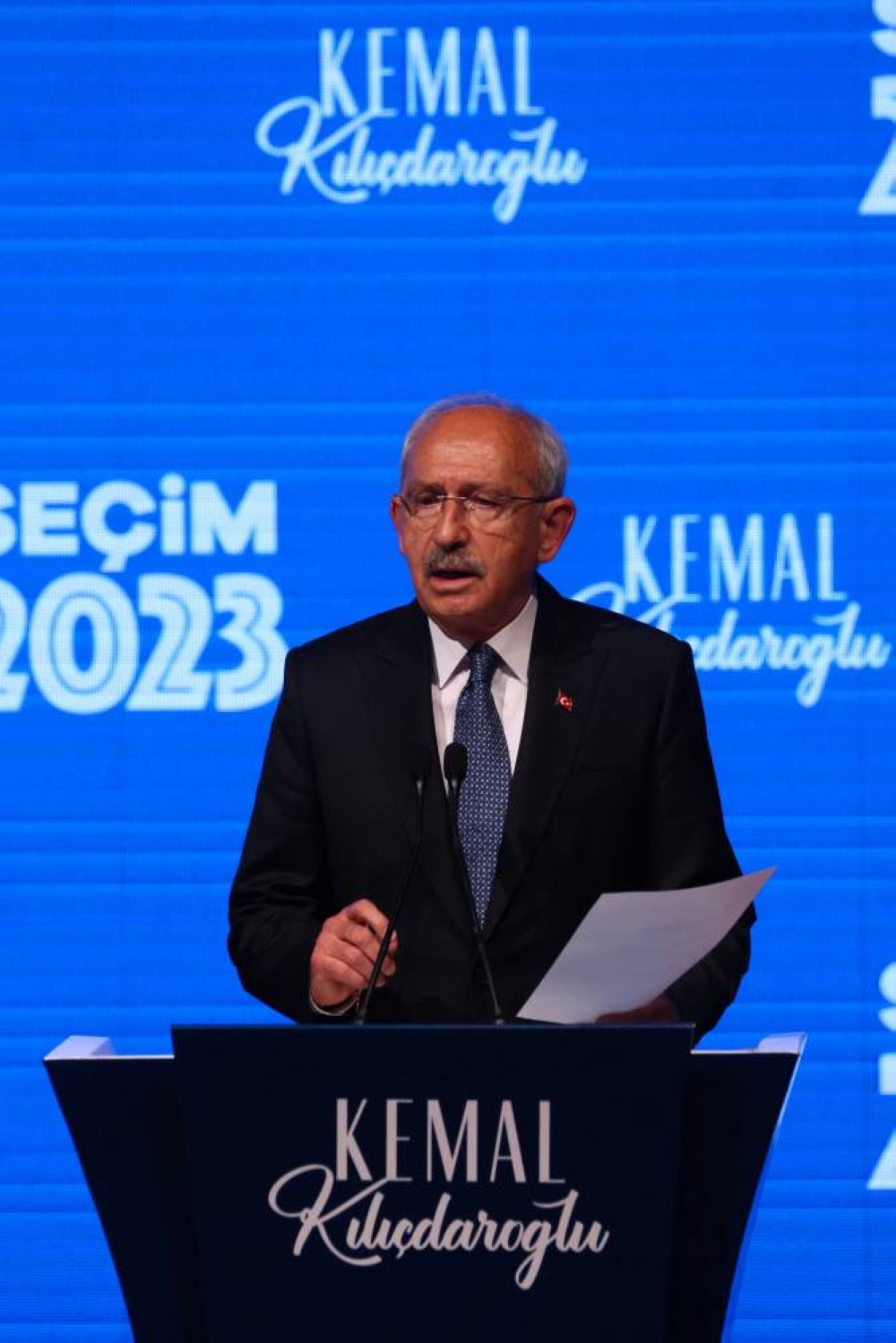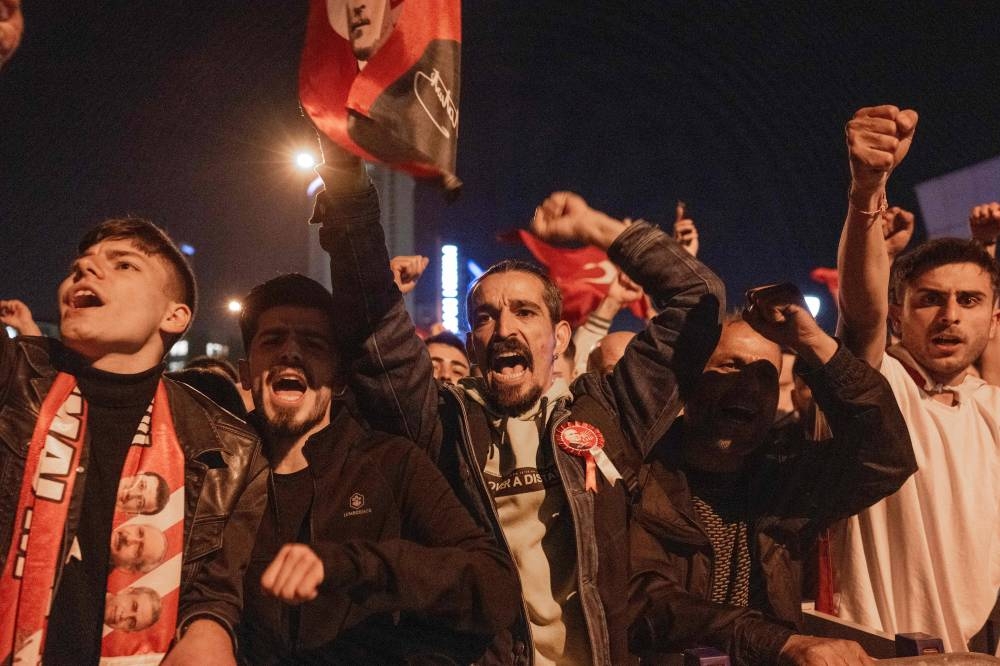- Ruling alliance set for parliamentary majority
- Analysts see Erdogan having advantage in runoff
- Third-placed candidate may play 'kingmaker' role
- Political uncertainty weighs on markets
Turkish assets weakened on the news, which showed Erdogan just below the 50% threshold needed to avoid sending the NATO-member country to a second round of a presidential election viewed as passing judgment on his autocratic rule.
Erdogan's People's Alliance, comprising his Islamist-rooted AK Party and its nationalist partners, also appeared set to win a majority in the new parliament with 321 of the 600 seats, further boosting his chances in the presidential runoff.
"The winner has undoubtedly been our country," Erdogan said in a speech to cheering supporters at the AKP headquarters in the capital Ankara overnight.
With 99% of ballot boxes counted in the presidential vote, Erdogan led with 49.4 and his main opposition rival Kemal Kilicdaroglu had 44.96%, High Election Board chairman Ahmet Yener told reporters. Turnout was a very high 88.8%.
Further boosting Erdogan's hopes, nationalist candidate Sinan Ogan, who placed third in Sunday's election, told Reuters in an interview on Monday he would only endorse Kilicdaroglu in the runoff if the latter ruled out any concessions to a pro-Kurdish party, parliament's third largest.
That party backs Kilicdaroglu but is accused of ties to Kurdish militants, which it denies.
The 2.8 million voters who backed Ogan in the first round will be crucial for Kilicdaroglu if he is to defeat Erdogan.
Opinion polls had shown Erdogan trailing Kilicdaroglu, but the outcome suggested that the president and his AK Party were able to rally conservative voters despite a cost-of-living crisis and soaring inflation.
Kilicdaroglu, head of a six-party alliance, vowed to prevail in the runoff and accused Erdogan's party of interfering with the counting and reporting of results. He called on his supporters to be patient, but they were downcast on Monday.
"We are sad, we are depressed about the whole situation. We expected different results," said commuter Volkan Atilgan as he sat near a ferry station in Istanbul. "God willing, we will win this victory in the second round."
By contrast, Erdogan supporters were jubilant as the results filtered out, with cyber security engineer Feyyaz Balcu, 23, confident that Erdogan could fix Turkiye's economic woes.
"It is very important for all Turkish people that Erdogan wins the elections. He is a world leader and all the Turks and Muslims want Erdogan as president," he said.
"Erdogan has now a clear psychological lead against the opposition," said Teneo co-president Wolfango Piccoli. "Erdogan will likely double down on his national security focused narratives over the next two weeks."
The election has been closely watched in Europe, Washington, Moscow, and across the region, where Erdogan has asserted Turkish power while strengthening ties to Russia and putting strain on Ankara's traditional alliance with the United States.
Erdogan is one of President Vladimir Putin's main allies and his strong showing is likely to encourage the Kremlin but unnerve the Biden administration, as well as many European and Middle Eastern leaders who had troubled relations with Erdogan.
The Kremlin said on Monday it expected Russia's cooperation with Turkiye to continue and deepen whoever wins the election.
The political uncertainty is expected to weigh on financial markets over the next two weeks. Overnight the lira hit a new two-month low against the dollar, weakening to 19.70 before edging back to 19.645 by 0600 GMT.
The cost of insuring against Turkiye defaulting on its sovereign debts surged to a six-month high, jumping 105 basis points (bps) from Friday's levels to 597 bps, according to S&P Global Market Intelligence.
The opposition had expected to benefit from voter anger at economic woes after an unorthodox policy of low interest rates triggered a lira crisis and soaring inflation. A slow government response to earthquakes that killed 50,000 people in February had also been expected to influence voters.
Kilicdaroglu, 74, has pledged to revive democracy after years of state repression, return to orthodox economic policies, empower institutions that lost autonomy under Erdogan and rebuild frail ties with the West.




